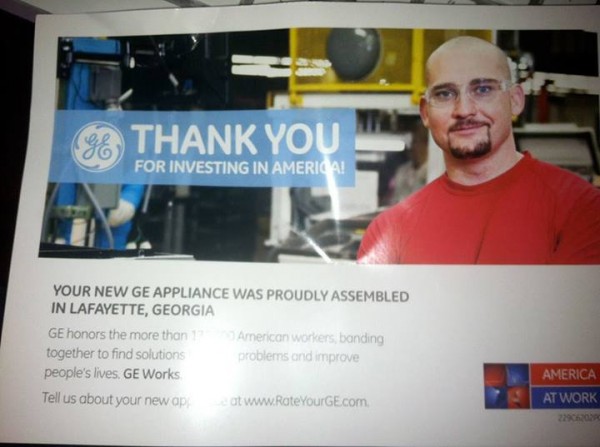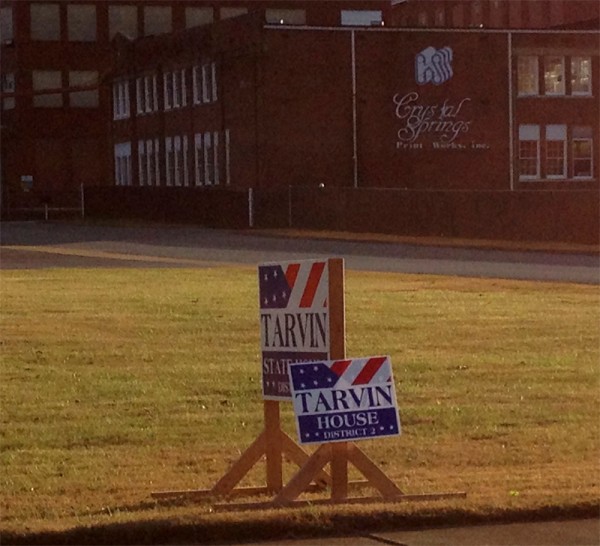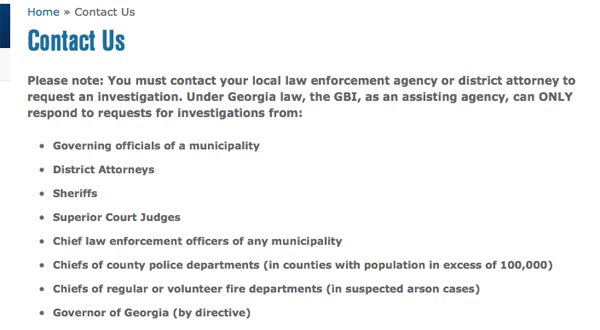01.06
UPDATE: Article with responses from Candidate Tarvin available here.
After Georgia Representative Jay Neal announced his mid-term resignation in early November, candidates scrambled to assemble campaigns in a short timeframe. The limited time between Rep. Neal’s decision and the special election intimidated many from joining a wide-open race that would normally have attracted a half-dozen or more candidates.
When qualification ended, only three men signed up as potential replacements for Rep. Neal: Chickamaugan Steve Tarvin, Rock Spring resident Doug Woodruff, and outgoing LaFayette Mayor Neal Florence. Tarvin and Woodruff’s decisions to join the race weren’t surprising – both had shown previous interest in state/regional politics and had existing campaign structures from failed runs in 2012. Florence, however, had shown no prior interest in an office higher than mayor, hadn’t run for anything since 2009, and had no campaign organization or signs left over from previous efforts.
All three have done a good job in short time making voters aware of their campaigns and motivating supporters to contribute, but some of their positions on issues that matter haven’t been made clear. That’s the purpose of this Q&A – clarifying issues so voters can go to the polls Tuesday armed with enough knowledge to make an informed vote.
Each candidate was contacted on December 28th, with a deadline to respond set for 11:59 PM January 2nd. They were contacted with e-mail addresses known to work, but only two of the three – Florence and Woodruff – responded by deadline. As of 4 AM on Monday January 6th, Candidate Tarvin has still not responded to (or acknowledged receiving) these questions. Sadly, his positions will be left to speculation and previous reports. He DID reply to a Q&A in 2012, which can fill in some of the blanks.
![]()
LU: What is your full name, and what name do you generally go by?
Florence: Harold Neal Florence Jr
Tarvin: [No Response]
Woodruff: Douglas R. Woodruff, “Doug”
LU: What is your age?
Florence: 62 yrs.
Tarvin: [No Response]
Woodruff: 50 years old.
In 2012 Steve Tarvin said he was born June 2, 1951 – making him also 62 years old.
LU: What is your home address?
Florence: Inside the city of LaFayette
Tarvin: [No Response]
Woodruff: Carriage Drive, Ringgold, GA 30736
In 2012, Tarvin lived on West 12th St. in Chickamauga.
LU: How can voters contact you or stay in touch with your campaign? (Please include info like e-mail, phone, Facebook, Twitter, Web site, etc. if applicable.)
Florence: Neal@NealFlorence.com
www.NealFlorence.com
www.Facebook.com/NealforGA
cell 423-595-0839
Tarvin: [No Response]
Woodruff: Doug Woodruff
www.dougwoodruff.com
campaign@dougwoodruff.com
706-375-1966
423-443-2621 cell
LU: How long have you lived in the area, and have you lived anywhere else?
Florence: LaFayette, GA since 1977 and before that Trion GA
Tarvin: [No Response]
Woodruff: I was born in Collegedale in 1963. My parents moved to Center Grove near Rock Spring in 1966 when I was three and I’ve lived in Walker and Catoosa Counties since then (aside from times I was away at school)
Florence was born in Cedartown before living in Trion. Tarvin said in 2012 he had lived in Walker County his entire life.
LU: Starting as early as you want, what kind of education do you have?
Florence: High School: MaCallie School in Chattanooga TN graduated 1969, College: Graduated University of GA with BS in Chemistry 1973, and BS in Pharmacy 1976
Tarvin: [No Response]
Woodruff: My parents home-schooled me and my siblings. I hold a Bachelor’s degree and post-graduate work in music and later graduated from the University of Georgia School of Law with a Juris Doctor degree.
Tarvin graduated from Chickamauga City Schools and attended a single quarter at UGA before taking a job at the factory he currently owns.
LU: What jobs or previous elected positions have you held?
Florence: Mayor of LaFayette since 1990
Owner and Pharmacist at Medi Thrift Pharmacy since 1978
Tarvin: [No Response]
Woodruff: I’ve been a teacher (Chattanooga State, Cadek Conservatory, Collegedale
Academy), Walker County Sheriff’s Deputy, was in private practice for the first few years after law school and then spent four years as an Assistant District Attorney here locally and am now the Chief Assistant in the Public Defender’s Office here locally.
Florence also serves as a board member for the Bank of LaFayette and worked for a while at Rhyne Bros Pharmacy in LaFayette before starting his own business. He was elected mayor in 1990 but took the oath in January 1991 – 23 years ago last week.
Tarvin described his position in 2012 as “Textile Mill Owner/Manager” at Crystal Springs Printworks in Chickamauga. He previously served on Chickamauga City Council, Chickamauga school board, ran for US congress in 2010 (losing to Tom Graves) and ran against Jay Neal for this house district in 2012. He’s also on the board of Walker County Habitat for Humanity, a failing charity which has only built six houses in fifteen years and lost its IRS nonprofit status last fall due to not filing required financial reports.
LU (Florence Only): Name five specific things you accomplished during 23 years as Mayor of Lafayette:
Florence: 1. Created O-1 zoning district to preserve historic houses along North Main Street
2. Removed old Coke building warehouse and created Joe Stock Park. Remodeled Coke plant building and created Public Safety Department.
3. Purchased Caron Spinning Building and moved Public Works, Electric Department and Water and Sewer Department under all one roof.
4. Removed facades from downtown buildings to revel the original skyline.
5. Filled up J Frank Cobb Industrial Park with businesses.
6. Created Health District of East Villanow Street. This created opportunities for doctor offices and more importantly for after-hours emergency services.
As Florence himself points out in a later answer, mayors don’t vote. He may have had a role in negotiations or pushing for some of these accomplishments but the decisions were hardly his alone. Even if he can take sole credit for all six of these five specific things, the list is hardly impressive considering nearly a quarter-century of service.
Neal Florence’s primary responsibilities as mayor have been leading council meetings, appointing people to various city committees, and his roles in groups that chose police chiefs, city managers, and set up city SPLOST lists. LaFayette’s record in those areas is pretty poor.
LU (Tarvin Only): Name five specific things you accomplished during your time on Chickamauga’s city council and school board:
Tarvin: [No Response]
LU (Woodruff Only): You’ve never before held elected office. Will a lack of political experience (compared to your opponents) be a hindrance or a help once you’re elected to the Georgia House?
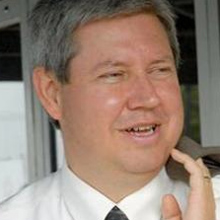 Woodruff: It will certainly provide plenty of challenge learning my way around the legislature. Fundamentally, though, political experience is not the measure by which the voters should decide who to vote for. Voters should look for a candidate who possesses the intelligence and strength of character to withstand the political pressures of Atlanta but also the patience and caring to stop and listen to the people that matter – individuals from House District 2 – and then go represent them and bring home value for our community.
Woodruff: It will certainly provide plenty of challenge learning my way around the legislature. Fundamentally, though, political experience is not the measure by which the voters should decide who to vote for. Voters should look for a candidate who possesses the intelligence and strength of character to withstand the political pressures of Atlanta but also the patience and caring to stop and listen to the people that matter – individuals from House District 2 – and then go represent them and bring home value for our community.
LU: What will your education and experiences contribute to make you a better State Representative?
Florence: They will allow me to make logical and appreciate decisions
My experience as a healthcare professional, business owner, mayor and pharmacy legislative committee member, give me an understanding of the entire legislative process, as well as a working relationship with current legislators. Recently, I worked with the Georgia Pharmacy Association and the Georgia Legislature to pass regulations allowing pharmacists to give immunizations under doctor protocol. The thousands of people who got flu shots at pharmacies without needing a doctor’s visit can appreciate my approach to practical legislation that can be implemented promptly and efficiently.
Tarvin: [No Response]
Woodruff: The most obvious advantage I have is my formal legal training and seventeen-plus years of legal experience. Legislators make decisions about legislation and no one is more qualified to evaluate a prospective legislation than an attorney. If laws are not drafted well they fail under attack no matter how well intentioned or legitimate they are. Having formal legal education and extensive legal experience both in our local courts and in the appellate courts in Atlanta uniquely qualifies me to evaluate pending legislation.
Lawyers must develop a very analytical and critical method of thinking. This will be very valuable in the legislature.
My many jury trials and adversarial hearings also uniquely qualifies me to advocate effectively. Years of making legal and persuasive arguments teaches you how to present an idea in a way that is more likely to lead to success.
LU: What are your thoughts on the role of a state legislator? What should a State Representative do, and (also important) what should a State Rep NOT do?
Florence: The main focus of a representative is to be just that, a representative of the people he or she is elected by at the State Capitol. A State Representative should look to reduce government, decrease spending and protect the tax payer’s money.
They should not be looking for ways to increase regulations and codes that are burdensome to business development. Also, they should not pass mandates to cities that are not funded.
A State Representative, or candidate for that matter, should not be running to serve themselves, or to advance their own political ambition.
Tarvin: [No Response]
Woodruff: It’s in the name – a Representative should first and foremost represent. That requires a good listener – someone who is genuinely interested in others, it requires a willingness to gather all available information on a given topic and a willingness to be open-minded and learn from input, and it requires the strength of character to then stand for the right thing and vigorously advocate.
A Representative should not act selfishly or for personal gain.

LU: What would you say is the greatest accomplishment of Georgia’s current legislative body?
Florence: Passing a constitutional amendment requiring a balanced budget every year. If the Federal Government would follow this example we could begin the long process of turning our nation around.
Tarvin: [No Response]
Woodruff: Criminal Justice Reform Act. This legislation is a big step toward a more effective approach to criminal offenders. Many of the changes been shown in other states to reduce repeat offenders and this is good in three particular ways: first and foremost, family units tend to be preserved, second, expenditures by the State are reduced, and third, revenue is generated by folks working and paying taxes.
LU: What would you say is the biggest failure of the sitting legislature?
Florence: Ethics, unfortunately Georgia doesn’t rank to well in Ethics and the current laws on the books don’t do enough to provide for an open and transparent state government. While we did limit gifts to elected officials, we have left the Ethics Commission itself in utter disarray and without any enforcement powers. We cannot ignore this.
Tarvin: [No Response]
Woodruff: I don’t have an opinion.
Mayor Florence’s choice of ethics as the biggest failure echoes the thoughts of many in his district. Woodruff’s lack of opinion is curious – if he doesn’t see any failures, what change can he bring when he’s elected? More of the same?
LU: What will be your first action once sworn in as a member of the General Assembly?
Florence: I will immediately seek out those with more legislative experience and seek their counsel and advice. I have much to learn and look forward to strengthening my relationships down at the Capitol so that I can most effectively serve the citizens of HD2.
Tarvin: [No Response]
Woodruff: To look at the seating chart – just like any first day in school!
Seriously, I have so much to learn that I couldn’t possibly hope to answer this question now. Things that are at the top of my priority list include, personal privacy in our digital age of hackers and government snooping, balancing the budget in a fiscally responsible manner, figuring out the best way to create an economically attractive environment for businesses in our district and improving our educational system so the next generation can be given the best chance to succeed.
Mayor Florence should be careful in developing too close a relationship with existing legislators; we need these outsiders to remain outsiders even as they try to work with others. Being best friends with everyone else in Atlanta is what turns good men into bad politicians.
Woodruff has mentioned Internet security as a priority several times in various interviews, but it’s not clear exactly what he expects the State of Georgia to do in that area considering most Internet businesses are located in other states and there’s no way for a Georgia Representative to do anything about “government snooping” at the federal level – other than unplug everyone in the state.
LU: What are the biggest problems faced today by residents of District 2, and what (if anything) can you do as a state legislator to make those problems easier to overcome?
Florence: Access to good jobs. For our area to improve, our citizens must have access to good quality jobs so that they can provide for their families and invest back in our local community. I’ve run a successful small business and know what it takes to create good jobs. We need to get government out of the way and let the free market work. We also need quality education and excellent public safety. As a servant leader, I will work on these issues during the upcoming legislative session.
Tarvin: [No Response]
Woodruff: Unemployment, education and the invasion of our privacy.
There are no easy answers but we’ve got to trim the budget where possible so that as revenues increase with the recent improvements in the economy we can apply those is the most advantageous way to important areas such as education and job creation. We need to look at legislation to bring some sanity into the information age which is a veritable “wild west” at the moment.
Would be nice to have more specifics here from every candidate. Good goals, but how will they be accomplished? Everybody wants lower taxes and more jobs and better schools but how can we get there? What budget cuts should be made? What tradeoffs will be necessary as part of making everything better while also lowering taxes?
LU: As a State Representative, what will YOU do to strengthen Georgia’s economy and bring business and jobs back into Northwest GA?
Florence: Work to reduce or eliminate the state income tax. Being here in NW GA we know all too well what it’s like to have to compete for Jobs against a state to our north that does not have an income tax. We have to reduce the tax burden on our hard working citizens and businesses. Government doesn’t create jobs, but it can and often does kill jobs by getting in the way. We must tackle this issue.
Tarvin: [No Response]
Woodruff: We come back to budget again. Once we’ve applied fiscally conservative
principles to the budget and then as revenues begin to increase, we need to look at ways to continue to make Georgia the #1 state in the union for industry.
LU (Tarvin Only): You recently shut down your 106-year-old textile business, Crystal Springs Print Works, a major employer and tax-payer in Chickamauga. What led up to the closure of this business, and what do you expect to happen to the closed facility next year? Will the Crystal Springs location house another business, will it sit empty, or will we watch it torn down for bricks and parts?
Tarvin: [No Response]
Mr. Tarvin recently told the Chattanooga Times Free Press his company was being sold and might reopen next year (2014). Remaining employees at Crystal Springs say Tarvin will continue to own the land, but the mill itself has been sold to a company planning to tear it down in order to resell the century-old bricks, flooring, and beams. Guess we’ll see which is true once the election ends.
LU: Rep. Jay Neal’s primary focus in the last few years has been reforming the state’s correctional system – reducing minimum sentences and expanding programs to help criminals reform instead of lingering in prison. Gov. Deal has also made correctional reform one of his priorities for the next term. What are your thoughts on what’s been done in this area so far, and what additional changes would you like to see? What’s the right balance between over-punishing and under-punishing criminals?
Florence: I am pleased with the progress Georgia has made in this area. Locking up non-violent offenders for long periods of time comes at a great cost to the taxpayers. Violent criminals must be punished, but those with addictions in many cases need treatment so that they can be rehabilitated and not remain a burden on society. It is a delicate balance, but we are definitely moving in the right direction.
Tarvin: [No Response]
Woodruff: I am a supporter of what has been done. There are some tweaks which both
prosecutors and defense attorneys agree on but as a whole it is excellent. States such as Texas have shown reductions in recidivism along with tremendous savings on expenditures.
Nobody wants to see prisons filled to capacity, especially with people who could be reformed and live normal lives outside of prison. But the balance to keeping criminals out of jail is to fully fund programs that address addiction, ignorance, and mental/emotional issues.
Also key: making non-prison reform programs accountable both to the state and their communities so those that don’t work are fixed or closed down. Right now in society, especially in Walker County, judges, courts, and law enforcement are seen as a joke because prison and non-prison punishments both look like a revolving door and sentences seem to be handed out arbitrarily.

LU: What will you do to address abuse behind bars at GA Department of Juvenile Justice and to fix conditions at Hays Prison which have led to multiple inmate deaths?
Florence: Abuse behind bars and inmate deaths must be fully investigated and those responsible held accountable. I will support all efforts to address these issues and make sure that we are taking adequate care of those we have responsibility for.
Tarvin: [No Response]
Woodruff: Juvenile Justice Reform is in place and will hopefully provide many of the benefits of its big brother, Criminal Justice Reform. Regarding Hays, it is my understanding that there have been no deaths (other than a recent suicide) since the installment of the new warden at Hays so hopefully that issue is at least mitigated now.
LU (Woodruff Only): Your current job is with the Public Defender’s Office in Catoosa County. Can voters be sure you’ll take an appropriate hard line on criminals as a legislator, even though you’re paid now to defend the accused? Will you support the law enforcement agencies and officers whose investigations have regularly been challenged by you in court?
Woodruff: I actually travel to all four counties of the Lookout Mountain Judicial Circuit litigating cases. This is not your pat political answer but voters should not seek to elect someone who will blindly take a “hard line” on criminals but rather someone who will take a thoughtful and intelligent approach to criminal justice. There is no doubt that we need laws to preserve the peace and good order of our community but history has shown that merely incarcerating someone and throwing away the key is not the answer. See my answers above regarding Criminal Justice Reform. Now, regarding support for law enforcement – I am a zealous advocate and have tried many cases as a defense attorney but I have also tried many cases as a prosecutor just as vigorously and have won many convictions. Attorneys are tasked with the representation of their clients, regardless of who the client might be and the protection of the rights of even the most guilty among us is vital to the protection of each of our own individual rights. All that being said, I will not hesitate to provide the support our law enforcement officers need.
LU: Gun rights and self-defense laws are in a spotlight, both nationally and in Georgia. In the last two months we’ve seen two high-profile cases here in HD2 involving potential robbers (or people seen as robbers) shot down by homeowners. Are the state’s current gun laws appropriate? What are your thoughts on House Bill 100?
Florence: I don’t think Georgia’s gun laws do enough to protect or expand our 2nd Amendment rights. I support House Bill 100 and will do everything I can to make sure the rights of law abiding citizens are not infringed upon.
Tarvin: [No Response]
Woodruff: In general I believe Georgia is on the right track.
With regard to the local cases, I don’t believe it would be appropriate to comment on these pending investigations.
I would vote in favor of HB 100.
Would be nice to know what candidate Florence would do to strengthen the state’s gun laws or what ways the existing laws don’t do enough.
For those who don’t want to read it, HB 100 would remove the state’s authority to confiscate or restrict gun ownership during emergency situations.
LU: Many in Walker County are concerned about cuts to school budgets and new insurance rules putting the squeeze on local libraries. What should be done to fund or reform education in Georgia and keep libraries around the state accessible to citizens?
Florence: The state budget is one of the most important responsibilities the State legislature has and as your next State Representative I will take the time and due-diligence to ensure that your tax dollars are spent wisely. The Education portion of the budget is very important and needs in depth scrutiny to better answer this question
Tarvin: [No Response]
Woodruff: We’re back to the budget. After applying fiscally conservative principles
to the budget process we must then use excess funds and any increase in revenue for important fundamentals like fully funding our schools.
In order to better fund libraries and schools without raising taxes, something else must be cut OR the funding systems for libraries and schools streamlined. Neither answer here gives enough information – HOW would you do this?
Tarvin’s 2012 answer to a similar question: “Is $1700 per capita enough spent on education? Yes, when totaled up we spent about $17B on education in Georgia almost as much as the entire budget, when you ad all monies from fed, state, local and private. The state itself spends about 54% of its budget on education or $1000 per capita. Where was the closest public library to your home in 1960? How many do we have now in Walker County today? We can have any and all things we want, the question to those with concern is, where do we get the money? Start by getting the federal government out of Georgia’s educational system. Education has gone downhill and costs have skyrocketed since the Dept. of Education was created. Local control of our education system and parents taking responsibility to insure that their children are being educated.”
Tarvin told the Dalton Daily Citizen he’s a supporter of charter schools – in theory. Woodruff, as a homeschool graduate, would also hopefully support more options for education (charter, vouchers, traditional public, etc.) although he didn’t specifically say so here.
LU: One of the most discussed political issues right now is healthcare and new federal health insurance laws. What are your thoughts on Georgia’s role in healthcare, insurance laws, and the expansion of Medicare? What is your position on House Bill 707?
Florence: Due to time limit, unable to answer
Tarvin: [No Response]
Woodruff: I am fundamentally against ObamaCare and believe we should do what we can to keep it out of Georgia. I would want someone smarter than me to explain the full effect of HB 707, however, before making any decision about it.
HB 707 essentially prohibits state agencies, state employees, and contractors doing business with the state from implementing or assisting the implementation of any aspect of the Affordable Care Act, a/k/a ObamaCare.
Within the time constraints of this Q&A it’s understandable if either candidate who participated didn’t have time to fully research the bill discussed or the other issues around it. (Hopefully candidate Woodruff won’t need “someone smarter” to explain legislation on a regular basis, else we’ll end up with another John Deffenbaugh.) Tarvin hasn’t expressly said he supports HB 707 but he did tell Dalton Daily Citizen the state should be allowed to reject the Affordable Care Act.

LU: Hutcheson Medical Center is located in the heart of House District 2. Since the hospital is owned by a regional committee controlled by three counties, major restructuring of its boards and leadership can only be done at the state level through legislative action. What do you think about the hospital’s current direction, and what (if anything) will you do in Atlanta to change the way HMC is currently run?
Florence: The hospital was created by the three counties. They have control over the boards that oversee the operations of the hospital. As I see it there are three options for the counties.
1. Sell it.
2. Lease it to an agency that is capable of operating hospitals.
3. Allow the local board to operate the hospital and make it profitable.
Tarvin: [No Response]
Woodruff: Let me first say that I believe there is great value in preserving our community hospital. The short answer is that I don’t know what the right call is. I am not privy to enough information to voice an educated opinion about what action is appropriate in this case. Sometimes difficult decision must be made, but whether that is to guarantee a bond or to simply allow the hospital to make it or not on its own is beyond me without significantly more information. Perhaps an independent third party evaluation would assist decision makers.
Both answers here (and Tarvin’s consistent non-answer) are disappointing. While Hutcheson was created by the three counties, county leaders only choose who sits on its boards. Since the Hospital Authority is a regional commission, its structure can only be changed by the state, through legislation. Changes to the HMC board were made last year by Jeff Mullis, John Deffenbaugh, and Jay Neal – future changes will have to be made by Mullis, Deffenbaugh, and whoever wins this House District 2 election.
It WOULD be nice to have “independent third party evaluation” of Hutcheson’s finances and structure as Woodruff says, but current hospital leaders don’t want that to happen. Outside light will only be cast inside the hospital if the legislature forces change or the counties force it to go into bankruptcy.
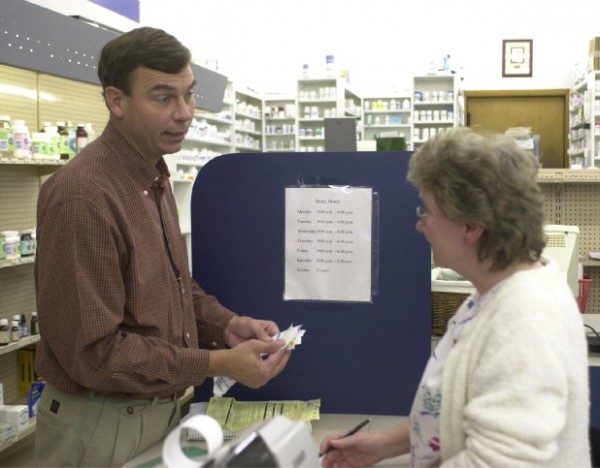
LU (Florence Only): For several years, Lafayette’s employee health insurance plan (approved by the council and mayor) has required city workers to buy prescription drugs through “locally owned” pharmacies. You happen to own one of the few pharmacies in town meeting that odd requirement – can you explain this seeming conflict of interest to voters?
Florence: This insurance plan was recommended by a consultant to go to partial self-insured plan to save the tax payer dollars. Annually the council reviews Employee health insurance plans and the council votes on the best plan for the city. The Mayor does not vote. The city worked together with several local pharmacies to put together a plan that supported local businesses and saved the city money.
The mayor does not vote, as he said. But he does have influence over the city’s decisions and processes – and he owns one of those “local pharmacies” that worked with the city to develop this plan. There is no record of Neal Florence at any point suggesting the advantageous plan not be adopted, even though most city employees hate that part of their insurance coverage because local pharmacies aren’t open on nights or weekends like chain stores.
When asked about this issue by the Times Free Press in 2011, Florence told a reporter “I’ll come after you” if they mentioned the policy being a conflict of interest as LU did previously.
LU: In recent years Georgia has struggled to establish and enforce coherent ethical standards for state legislators and other elected leaders. Budget cuts and accusations of bias at the Ethics Commission (resulting in FBI action), along with accusations of ethical lapses against Governor Deal and Senator Don Balfour, have given the state a black eye. Is Georgia on the right track ethically? What changes, if any, would you propose to state ethics or campaign laws?
Florence: No, Georgia is not. Georgia needs an unbiased, totally independent agency enforcing state ethics and campaign laws.
Tarvin: [No Response]
Woodruff: I don’t have enough information to provide an informed intelligent answer.
Florence’s answer is on track, but again HOW could this be done?
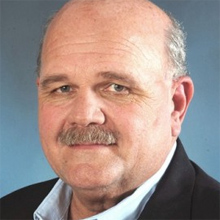 In 2012 Tarvin came out AGAINST strengthening ethics rules, saying, in part: “Elect the right people is the answer not more and more laws to be gone around and dodged.”
In 2012 Tarvin came out AGAINST strengthening ethics rules, saying, in part: “Elect the right people is the answer not more and more laws to be gone around and dodged.”
However, in an interview with the Dalton Daily Citizen last week he said ethics reform is needed: “There needs to be ethics reform. I don’t know why I need to take money from lobbyists if I’m a legislator. I don’t think there’s a reason for it.”
LU: Ethical problems at the local level are also alarming. In light of recent news reports about judges in Chattooga and Walker taking illegal payments to dismiss minor charges, do you feel local judges and prosecutors are held to the ethical standards they should be? Once elected would you push for laws to hold judges, prosecutors, and member of law enforcement more accountable for their actions?
Florence: All of our elected and appointed officials must be held to a higher standard of ethical and moral accountability. I will support all good public policy that seeks to improve accountability for those in positions of power.
Tarvin: [No Response]
Woodruff: I’m not convinced that additional laws are required. The Judicial Qualification Commission (JQC) already possesses sufficient power over judges to take whatever action they deem appropriate and they’ve demonstrated over the years a willingness to use that power. Prosecutors are constitutional officers but any criminal malfeasance can be investigated by proper law enforcement authorities and dealt with accordingly. Law enforcement, also, can be investigated by the GBI or FBI in the event of wrongdoing.
Another answer from Florence that needs more detail. Woodruff’s answer is outright disappointing – just in the last few weeks we’ve seen ethical issues bordering on bribery in Chattooga County dismissed without punishment by the JQC. And Woodruff should know, if anyone does, that the GBI can’t just be called by citizens in to investigate. Law enforcement agency leaders, sitting judges, county commissioners, mayors, and district attorneys are the ONLY people who can ask the GBI to come investigate incidents that often involve their own actions. That’s one reform that should be strongly considered.
LU: What are your thoughts on the state’s current civil forfeiture laws, and do you support reform in that area? Would you have voted for House Bill 1 if you had been in the General Assembly last winter?
Florence: Yes.
Tarvin: [No Response]
Woodruff: It is a very long and complex piece of legislation. I’ve not litigated any cases involving this (and consequently haven’t researched it) and given the short time period for completion of this Q&A I can’t answer whether I would have voted for it or not.
HB 1 WOULD have reformed state laws about forfeiture of assets from people accused of criminal activity, if it hadn’t been shot down by state leaders after a protest from law enforcement agencies.
Currently, anyone suspected of a drug crime or a handful of other offenses can have their assets or cash taken by police or deputies, even if they aren’t convicted or never face charges in court. Existing law in this area is ripe for abuse and has to be changed to protect citizen rights.
LU: Georgia is the only state allowing sole-commissioner county government, a system only employed by eight of the state’s 159 counties. Can a sole commissioner adequately represent the needs of fifty thousand or more people, and also remain ethically accountable? As a member of Walker County’s delegation to the General Assembly, would you produce legislation giving Walker County a board of commissioners if citizens request it?
Florence: Local control is key to good public policy. On matters of self-government I will defer to the citizens and support the form of local government that they choose for themselves.
Tarvin: [No Response]
Woodruff: The simple answer is that it is possible to represent a county and remain
ethically responsible. Ask the majority of voters in any of the eight counties and they’ll tell you that it is, in fact, happening. Many disagree, but I am not going to engage in that debate. If the voters of a given county wish to change from sole commissioner to an alternate form of government and the issue was properly before me then I would entertain that.
Two men running for the General Assembly should understand and appreciate the value of checks and balances. Imaging a president with no congress or a governor with no legislature, and then think of the abuses that might come about as one person rises to have sole control over a body of government. Small cities can’t have sole mayors in Georgia, but massive counties can be run by a single person with almost no accountability. The entire system needs to be abolished state-wide, but we’re once again looking at three candidates who aren’t going to venture down that road.
However, listening to the voters on this issue is better than answers given by previous candidates for District 2 who said they would defer to the wishes of county leader(s). Hopefully Representative Florence or Representative Woodward WOULD pay attention to constituents if they were presented with a petition or something similar requesting a formal vote on the county’s form of government. Whoever wins this race might just be put to the test on that issue.

LU: At one point Georgia’s roads were considered to be among the nation’s best. In recent years state and (especially) local roads have deteriorated, and new construction projects have become rare. Various funding plans like TSPLOST, SPLOST, and LARP have popped up over the years with various levels of acceptance and limited success. What would you do as a State Representative to bring all Georgia roads back to a higher standard?
Florence: Maintaining our transportation infrastructure is a one of the things government should actually be doing. Far too often they stray into other areas and inevitably fall short in handling what they are responsible for. We see this with transportation. State Government must take a hard look at our transportation system and our taxation system that is supposed to support it. Changes are going to have to be made, but I think that can be done without increasing the size and scope of Government, and without increasing the tax burden.
Tarvin: [No Response]
Woodruff: I don’t have a easy answer. When revenues are tight everything becomes difficult. Once we apply fiscally conservative principles to the budget to maximize what revenues we have then, and only then, will an analysis of options yield the best of the painful options. Taxes are to be lowered when possible but none of us is totally anti-tax since we all want services like police, fire, and ambulance. It’s finding the proper balance between no taxation/no services and a socialized nanny state which is difficult. It seems that increases in income or property taxes seem to never go away so SPLOST are attractive because of their limited time frame and specified purpose. The devil is in the details, however, so one must be vigilant in their construction.
A suggested first step to fixing roads would be requiring money collected for a specific purpose (like road repairs or tire recycling) actually be used FOR that purpose. The state gas tax, collected for half a century and meant for road work, goes into the state’s general budget where it’s wasted along with other funds instead of being used how it should be.
LU: What personal beliefs, philosophy, or other criteria will you use when deciding what legislation to support or oppose?
Florence: I like to use a 5 way test employed by our Congressman, Tom Graves.
• Is it constitutional?
• Does it reduce the size and scope of Government?
• Does it lessen the tax burden?
• Does it promote personal responsibility?
• Does it promote liberty and justice for all?
Tarvin: [No Response]
Woodruff: I am a Christian who believes in personal responsibility and the Constitutions of the United Stated and State of Georgia. Those are the most basic principles which have guided me my entire life. Beyond that, however, a Representative must remember the role for which that Representative signed up and act with the best interest of his/her constituents in mind, as well.
LU: What sets you apart as the BEST candidate to represent House District 2? Why, in general, do you deserve voter support???
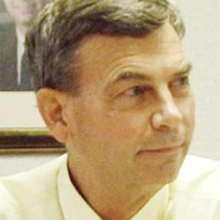 Florence: I believe you need to look at a candidate’s record; both in the private and public sectors to determine how they will lead if elected.
Florence: I believe you need to look at a candidate’s record; both in the private and public sectors to determine how they will lead if elected.
• I have been a successful business owner for 34 years and I have created jobs right here in the 2nd District. I know all about meeting budgets and payrolls.
• I have faithfully served as Mayor of LaFayette for over two decades and believe my record of service stands on its own. I was actually retiring from public life when this position opened up and I felt called to offer myself for service in this capacity.
Tarvin: [No Response]
Woodruff: I have a long history of public service. It has never been about the money in my jobs and I’m running because it is a logical “next step” in my service to my community. My experience as a teacher, volunteer firefighter, law enforcement officer, private attorney, assistant district attorney and now as a public defender has taught me to perform under pressure and has made me a truly caring listener, a thoughtful decision maker and aggressive advocate of those whom I represent. I appreciate at a very personal level the value of our constitutional rights (guns and personal privacy in particular) and am the only candidate in this race who has actually litigated cases involving those rights. My legal training and experience gives me a unique ability to both write and evaluate legislation. With the Federal Government’s constant creep toward a surveillance/nanny state it is imperative that our community have someone who has the knowledge and experience to stand and fight at the state level.
LU: Is there anything else voters should know about you? Family, faith, philosophy, inspirations, etc.?
Florence: With me, what you see is what you get. I’m not flashy nor do I enjoy seeing my name in lights. I’m offering myself to continue serving the people and working to improve the community we call home. I humbly ask for your support.
Tarvin: [No Response]
Woodruff: I invite anyone with questions to contact me in the most convenient way for them.
![]()
Just like the campaign itself, the time allowed to prepare for this Q&A was shorter than most people would like. The candidates who responded here, Woodruff and Florence, are to be commended for their willingness to participate even if a few questions weren’t answered very deeply.
That said, every candidate in this race should be working to become familiar with the issues discussed since the winner of Tuesday’s election could be sworn in as a member of the Georgia House within a few days of victory. There’s not much time to research bills like HB 707 or HB 1 before the legislature convenes on January 13th, a week from today.
Based on their answers, it’s hard to choose between Woodruff and Florence as the right candidate in this race. Both have provided similar responses and seem to have similar goals for the state if elected. However, based on previous issues with Mayor Florence’s resistance to answer questions (the “get you” threat being a good example), his inaction during times when LaFayette endured ethical crisis, and his thin list of accomplishments during 23 years as mayor, it’s difficult to endorse him as a legislator.
Steve Tarvin’s continual avoidance of locally relevant issues, while inserting himself into national politics and conflicts (like mailing out a flyer referring to the “Duck Dynasty” controversy), indicates that he’s more interested in a higher office than State Representative. He ran for US Congress in 2010 and seems like anything short of that is just “settling” from his perspective. His recent failure to file campaign finance reports as his opponents did, along with some unanswered questions about his closed business, are also red flags. (Not to mention he’s from Chickamauga, a tiny town more than adequately represented now in county and state government.)
That leaves Doug Woodruff. He’s not a perfect candidate (has there ever been a perfect candidate?) but his positives seem to outweigh negatives. His experience in education, law enforcement, and both sides of the court give him a good perspective on life and would make him the closest replacement for former Representative Jay Neal, who shares some of the same background and history. This isn’t quite an endorsement, but from the LU perspective candidate Woodruff is the safest choice in this race.
![]()
The winner of Tuesday’s election (assuming a runoff isn’t necessary) will only hold office for one year, completing Jay Neal’s unfinished two-year term. More votes will be held in May and November to determine who sits in the same chair NEXT January – meaning the winner of this vote will have to face voters again in about five months.
Only residents of House District 2, covering parts of Walker, Catoosa, and Whitfield, can vote in this race. To verify which district you live in and where you vote on Tuesday, visit the Georgia Secretary of State My Voter page.



